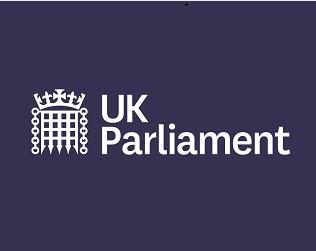The Justice Committee is a cross-party group of MPs appointed by the House of Commons to examine the policies and spending of the Ministry of Justice and associated public bodies.
This includes the courts, legal aid, prisons, probation and the rule of law. It also advises on sentencing guidelines. The Justice Committee is chaired by Sir Bob Neill MP.
Role of the Justice Committee
Sir Bob Neill MP, Chair of the Justice Committee, explained the role of the Justice Committee and how to get involved in the Committee’s work
The Justice Committee was appointed by the House of Commons to examine the expenditure, administration and policy of the Ministry of Justice and associated public bodies, (to include the work of staff provided for the administrative work of courts and tribunals, but excluding consideration of individual cases and appointments, and excluding the work of the Scotland and Wales Offices and of the Advocate General for Scotland); and administration and expenditure of the Attorney General’s Office, the Treasury Solicitor’s Department, the Crown Prosecution Service and the Serious Fraud Office (but excluding individual cases and appointments and advice given within government by Law Officers).
The Justice Committee is one of the 19 Select Committees related to Government Departments, established by the House of Commons under Standing Order No. 152.
Role of the Justice Committee – Parliament Website
Subjects of Inquiry
The Justice Committee chooses its own subjects of inquiry.
Depending on the subject, external deadlines, and the amount of oral evidence the Committee decides to take, an inquiry may last for several months and give rise to a report to the House; other inquiries may simply consist of a single day’s oral evidence which the Committee may publish without making a report.
When the Committee has chosen an inquiry it normally issues a press notice outlining the main themes of inquiry and inviting interested parties to submit written evidence. It may also identify possible witnesses and issue specific invitations to them to submit written evidence.
Role of the Justice Committee – Parliament Website
Membership
As of the 19th January 2024, the current members of the Justice Committee published on the Parliament website were :-
| Name | Party or affiliation | Constituency or type |
| Sir Robert Neill MP | Conservative | Bromley and Chislehurst |
| Tahir Ali MP | Labour | Birmingham, Hall Green |
| Rob Butler MP | Conservative | Aylesbury |
| James Daly MP | Conservative | Bury North |
| Rt Hon Maria Eagle MP | Labour | Garston and Halewood |
| Rachel Hopkins MP | Labour | Luton South |
| Paul Maynard MP | Conservative | Blackpool North and Cleveleys |
| Dr Kieran Mullan MP | Conservative | Crewe and Nantwich |
| Chris Stephens MP | Scottish National Party | Glasgow South West |
| Edward Timpson KC MP | Conservative | Eddisbury |
| Karl Turner MP | Labour | Kingston upon Hull East |
Inquiries
Inquiries allow committees to consider oral and written evidence on a particular topic. They usually result in the publication of a report.
All inquires of the Justice Committee past and present are published and can be searched for on the Parliament website.
Contact the Justice Commitee
- Email: justicecom@parliament.uk
- Phone: (General Enquiries) 020 7219 7005 (Media Enquiries) 07842 601500
- Address: House of Commons, London SW1A 0AA
Check out our article on the highly questionable Sussex Family Justice Board and make up your own mind.
We recommend you should always seek formal legal advice if required, from a qualified and reputable lawyer (solicitor or barrister).
We have a number of links to Free Legal Resources and Legal Organisations on our Free Legal Advice , Legal Aid and Pro Bono pages.
Read the reviews of Gavin Howe Barrister
“He is awful, underhanded and should not be practising law!”
Latest Articles
- What is a Paralegal ?A paralegal is a legal professional who performs tasks that require knowledge of legal concepts but does not hold the… Read more: What is a Paralegal ?
- What is a Judgment ?A judgment, also known as a judicial decision or court ruling, is the final decision made by a court of… Read more: What is a Judgment ?
- What is an Adverse Inference ?Adverse inference is a legal principle that plays a significant role in various areas of law, including criminal, civil, and family law. It arises… Read more: What is an Adverse Inference ?
- BarristersA barrister is anyone who has been Called to the Bar in England and Wales. For a barrister to offer… Read more: Barristers




